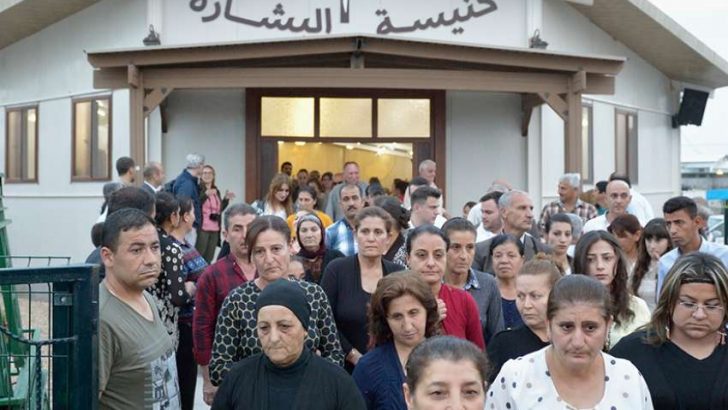A top Catholic humanitarian group has expressed concern for the tens of thousands of Iraqis displaced inside their country and dependent on assistance, because access to them has become severely restricted due to Covid-19.
“The government in the northern Kurdish area of Iraq has been very careful and restrictive (with regard to measures to tackle coronavirus), more so than in central or southern Iraq,” said Hani El-Mahdi, Iraq country representative for the US bishops’ Catholic Relief Services. Mr El-Mahdi spoke to Catholic News Service by phone from the area’s capital, Irbil.
“But access to people is a challenge,” Mr El-Mahdi said of the current situation as most of Iraq faces lockdown in a bid to stem the spread of Covid-19. Iraq has reported 1,434 cases of the coronavirus as of April 17, but some medical professionals claim the number could be higher.
“Travel between cities and within cities in the first two to three weeks was very restrictive. Now, the government is looking into requests [by aid groups] to access certain areas. But still, most of the nongovernmental organisations and Caritas, whom we work with closely, and others in Irbil, we are all under the same situation – we cannot access the population in these circumstances,” Mr El-Mahdi explained.
“People are stranded more than ever,” he said.
Mr El-Mahdi said nongovernmental organisations and the Kurdish government are considering how to change the way groups like CRS and Caritas can operate under the current constraints, perhaps implementing remote systems and various technologies.
The CRS representative said most of the organisation’s work in recent years has been aiding the “returnees,” Iraq’s religious minorities, such as Christians, Yazidis and Shiite Shabak, who were victims of the Islamic State militants’ violent takeover of their towns and villages, both in and outside the Ninevah Plain region from 2014 until 2017.
This has involved aiding about 10,000 people by rehabilitating houses and schools, providing people with livelihood opportunities, educational services and training as well as encouraging ways to reconcile different religious and ethnic communities by tackling issues and building social cohesion among those groups.


 People leave a Catholic church after a service in a displaced-persons camp in Ankawa, Iraq, April 2016.
Photo: CNS
People leave a Catholic church after a service in a displaced-persons camp in Ankawa, Iraq, April 2016.
Photo: CNS